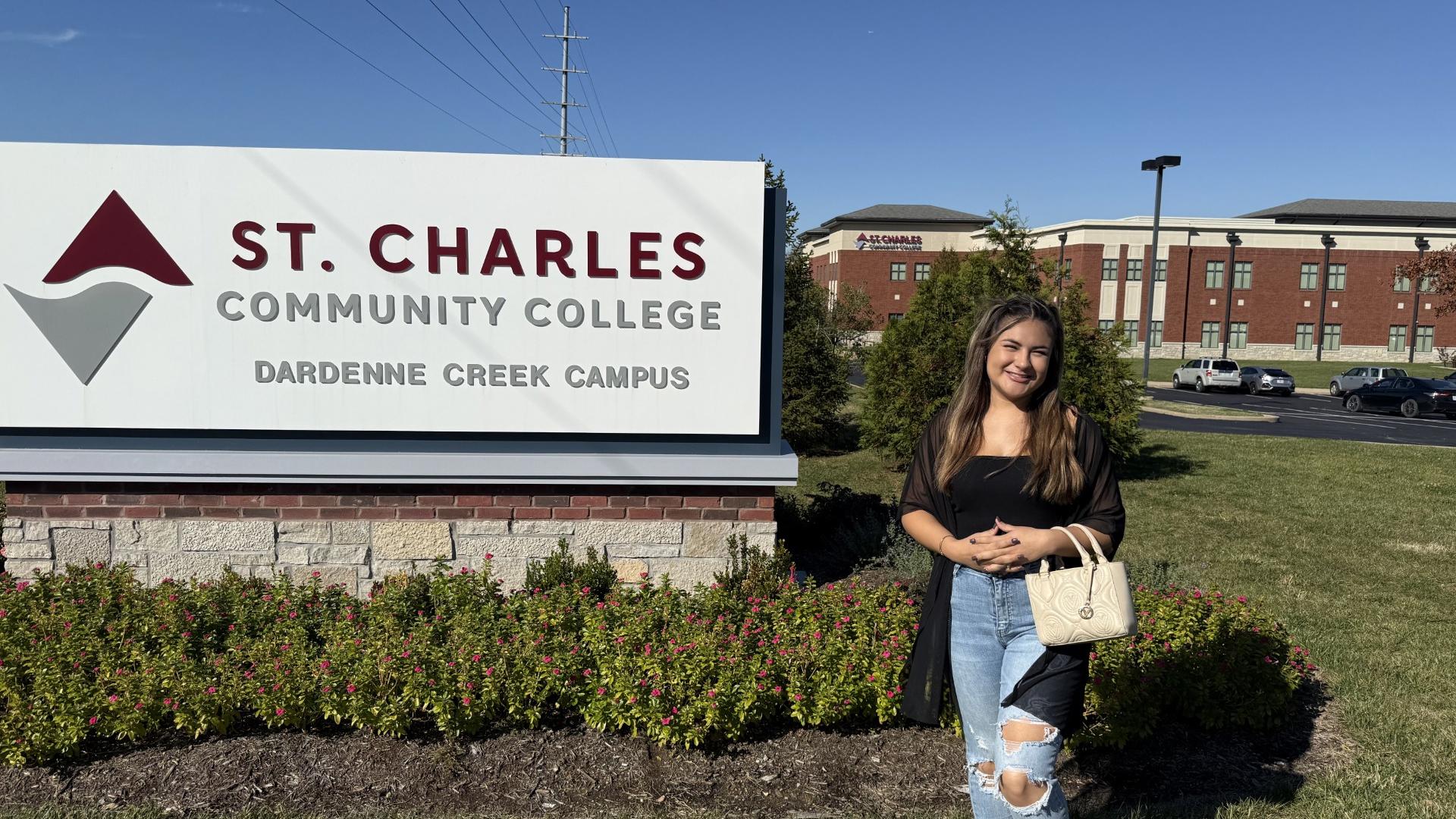DARDENNE PRAIRIE, Mo. —
Alondra Orozco, a recent nursing school graduate, has spent years working toward her dream of becoming a registered nurse — but her immigration status is blocking her from reinforcing the depleted ranks of Missouri’s nursing workforce — even though federal law allows states to issue professional licenses to non-citizens.
“We were following the American dream,” she said, explaining that her family saw greater educational opportunities and a safer community in the Midwest.
Born in Chihuahua, Mexico, Orozco was just five years old when her family moved to Missouri. While her two younger siblings were born in the U.S. and are American citizens, Orozco recently discovered that her status as a DACA recipient means she can't obtain a nursing license in Missouri.
“I’ve given them everything. I have everything that they need for a nurse to work in Missouri, and they still don’t want me,” Orozco said, tears welling in her eyes as she contemplated the possibility that she would have to decide between moving away from her family or remaining in her chosen field.
“I have to be here,” Orozco said. “I have to be here and I’m not willing to put that over my family. I’ve been here since I was five. I did my clinicals here, and everything."
As a DACA recipient, she is temporarily protected from deportation and eligible for work authorization, so long as she completes regular background checks every two years. Yet that work authorization, in the view of the Missouri legislature, is insufficient for her to legally practice as a nurse.
Meanwhile, the nursing field suffers from a turnover rate higher than 16% while more than 15% of the nursing jobs in the state remain vacant, according to recent data from the Missouri Hospital Association. The labor shortage has pressured hospital systems to pay premium wages to travel nurses from other states and from other countries to fill the void.
Orozco’s frustration is compounded by the fact that Missouri law requires applicants to be U.S. citizens or green card holders in order to qualify for professional licenses. Though federal law allows states to issue licenses to non-citizens, Missouri has not extended that option to DACA recipients like Orozco.
“Personally, right now, with what happened under the Biden administration letting everybody in with asylum without doing background checks – without anything really. They just kind of said, ‘Hey, welcome.’ Right? I'm personally against it,” Orozco said. “It's not safe at all. And I know a lot of people are gonna say, ‘Oh, well, you came in.’ You know? ‘You're not from here, either.’ Yeah, but we're good people. And I do think that America needs to protect its borders, of course; but if there was only a pathway -- I promise you -- if there was a direct pathway for us to get citizenship or to get a green card and then get citizenship, we would do it.”
Her story highlights the complexities faced by Dreamers and DACA recipients who have built their entire lives in the United States but can sometimes run into unexpected bureaucratic or political roadblocks along their way.
Orozco has always dreamed of becoming a nurse. She knew the path would be difficult – her legal status as a non-citizen meant she couldn’t qualify for federal tuition aid, either.
“Nobody has ever gone to college in my family,” she said. “All they've ever wanted was to see me graduate from college and pursue my dreams.”
However, she never anticipated the highest hurdle would come after graduation. Only once she went to schedule her board exams did she realize a blockade in state law threatened to derail her career. The Class of ‘24 St. Charles Community College graduate is ready to work, but the Missouri Board of Nursing has declined her application for a nursing license.
“I looked through the list of options and couldn’t find one that matched me. I have the I-766, the authorization to work through DACA, but Missouri wouldn’t let me in,” Orozco said, describing the moment she learned she couldn’t be licensed in the state.
For Orozco, the rejection was a devastating blow. “It’s hard to put into words,” she said. “It feels like a kick in the face.”
“Pursuant to 8 U.S.C.A. §1621, the Board of Nursing is prohibited from granting professional licensure to a non-eligible, non-citizen of the United States,” Missouri Department of Commerce & Insurance Communications Director Lori Croy wrote to 5 On Your Side in an email. “We are required to follow the federal law.”
The federal statute she cited specifically allows state legislatures to grant non-citizens professional licenses.
After Orozco posted a video of her disappointment on TikTok, it started to spread and caught the attention of Ray Reed, a newly elected state representative in Missouri.
“I think in Missouri, we should reward folks who are hard-working and resilient, and that’s exactly who she is,” Reed said.
Reed said he plans to write Governor-elect Mike Kehoe a letter proposing a change to Missouri’s licensing regulations, which currently prevent non-citizens from obtaining professional licenses in the state.
Kehoe’s transition team did not respond to calls seeking comment.
“Just because Congress is dragging their feet on giving her citizenship doesn't mean that we can't allow her to contribute to our communities," Reed said.
Orozco has since applied for jobs in Illinois, where her credentials were quickly accepted - but the process left her with mixed emotions. While she’s excited to begin her nursing career, she still feels a deep connection to Missouri, where she’s lived most of her life and built relationships in the community.
Though she may no longer be able to start her career in Missouri, Orozco’s hope is that sharing her story will raise awareness about the barriers facing DACA recipients and other Dreamers like her.
"If I would have known that Missouri wouldn't have allowed me to get my license before even starting school here, I would have gone to another state,” she said.

